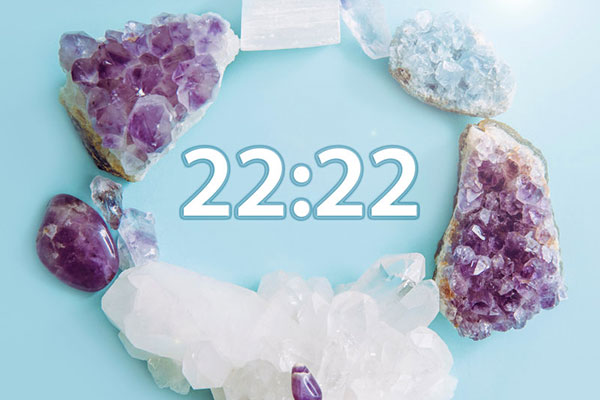Conscious Conflict Resolution
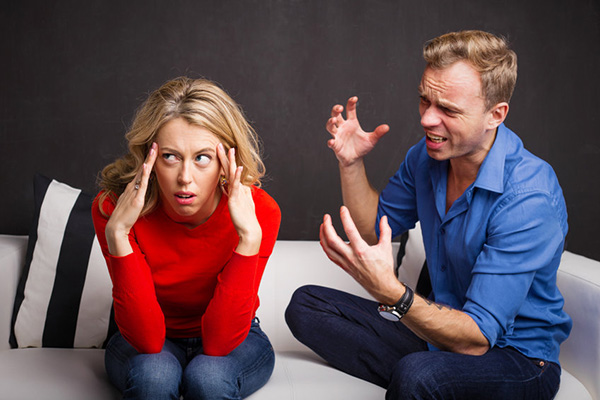 Dealing with tension and conflict is one of the most challenging dynamics in friendships and relationships. We have all found ourselves in a shouting match with someone we love, or concluding an argument feeling awful and unresolved.
Dealing with tension and conflict is one of the most challenging dynamics in friendships and relationships. We have all found ourselves in a shouting match with someone we love, or concluding an argument feeling awful and unresolved.
Getting to the root of an issue without all the drama sometimes feels impossible. But conflict resolution is a skill, and one that can be honed with practice and patience.
The following strategies are helpful in shifting from overreaction to consciously seeking resolution when faced with difficult conversations or conflict scenarios.
Pause For Self-Awareness
Pause and identify what you are feeling. Step back from the feeling and merely observe it, as well as any thoughts that come along with the feeling.
Recognize that ‘you’ are not the feeling; it is a simply a sensation you are experiencing. Often people will say they are ‘angry,’ but words are powerful and this indicates that you have identified with the anger. You are actually saying: ‘I am anger.’
Do not choose to ‘be anger.’ You are merely experiencing anger. Shifting this mindset can help to separate your rational mind, from the emotional sensation of anger (or hurt, or whatever feeling you may be experiencing).
Once you are able to observe your emotions and thoughts in this way, it becomes much easier to avoid reacting from them. By not reacting, you give yourself the opportunity to think about your response first, and consciously choose your course of action.
How To Avoid Empath Ego-Traps
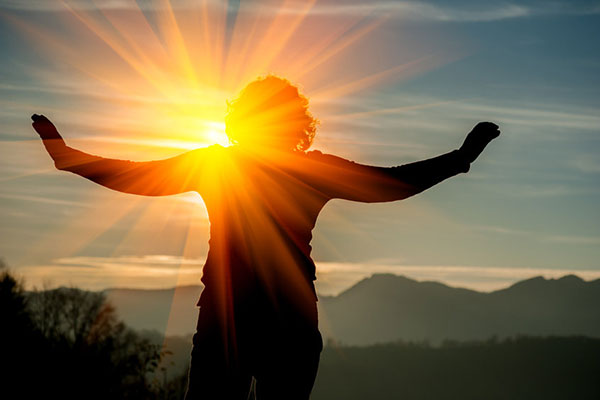 Being an empowered empath is a wonderful gift and blessing. But the empath ‘label’ can also become problematic when it is misconceived by some as meaning more than it truly signifies.
Being an empowered empath is a wonderful gift and blessing. But the empath ‘label’ can also become problematic when it is misconceived by some as meaning more than it truly signifies.
There are very common ego-traps that some empaths and highly sensitive people get hung up on with regards their empathic experiences. These ego-traps can be very counterproductive, as it may actually be holding them back from meaningful personal growth and progressing our spiritual path.
These ego traps are easy to get wrapped up in, but they are not a sign of weakness or failure. The experience of being an empath is often intense and confusing. These ego-traps offer lessons for us that often go hand-in-hand with life as an empath.
Some of the typical empath ego-traps are as follows:
Empaths Always Know Best
Assuming we are always right about how we ‘read’ a situation or person, or needing to save everyone and be everybody’s ‘therapist.’ We may have a good read that something is amiss, or that someone is upset, but its unwise to assume we always know exactly why.
Often empaths will feel something from someone and decide for themselves why that person is feeling that way. This is a good way to create conflict and tension in relationships! Instead of assuming, rather ask.
And if the person doesn’t want to talk about it, try assuming it is not about you, and that maybe you have no idea what is really upsetting them. Start there. Give the person space and do not make it about you. Continue reading
Being An Empath Is No Excuse
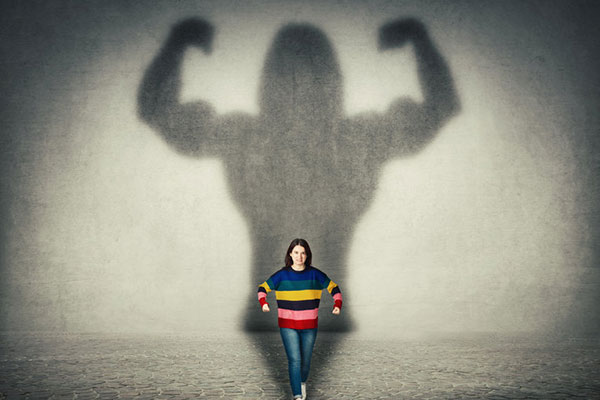 There’s nothing wrong with identifying as an empath. Actually, it can be beneficial to step into this truth for oneself, and own your empathic experiences as a significant aspect of your life.
There’s nothing wrong with identifying as an empath. Actually, it can be beneficial to step into this truth for oneself, and own your empathic experiences as a significant aspect of your life.
But for many people it is difficult to take on this ‘label,’ because they don’t feel worthy or they feel they are saying, “I’m more special than other people.” In these cases, there is great benefit in coming to terms with being an empath because it doesn’t have to mean either of those things.
Being an empath is not something they have to be worthy of – it’s a trait they either have or don’t have. And it’s not a matter of being better or ‘more special’ than anyone else – that notion comes from a fear of being judged.
Being an empath means being highly sensitive to emotional energies, and feeling those emotions in your own body as if they were your own. The term ‘empath’ is just a word we can use to describe this trait.
There is some scientific evidence for the empath experience. Studies* show we all have a very specific group of cells in our brain responsible for empathy and compassion, called the Mirror Neuron System. In the brain of highly empathic people, it is thought this group of cells may be hyperactive or hypersensitive.
Being an empath is a wonderful blessing and gift, instead of it being a ‘curse,’ weakness or disability. However, it is important for the empath to become empowered and own their sensitivity.
In order to accomplish this, it is vital for the empath to avoid adopting a ‘victim mentality’ or constantly blaming everything negative that happened in their life on the fact that they are an empath.
Some empaths erroneously believe many of the struggles they encounter can’t be overcome. They assume that they will always be crippled in some way by their experience as an empath. This is false. They may have specific experiences and lessons because they’re an empath, but these are opportunities for growth. Some of the ways this manifests are:
Dealing With ‘Unawakened’ Friends And Family
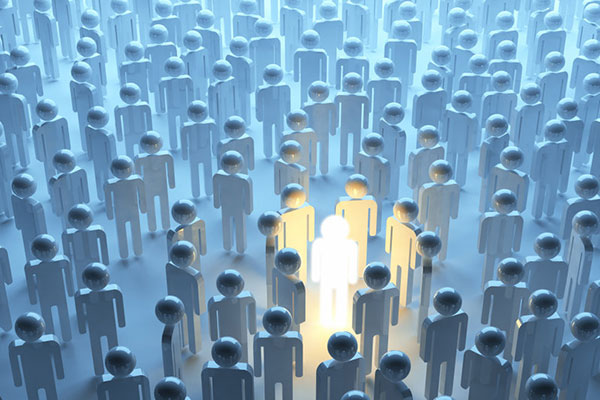 Spiritual awakening is a profound shift in our perception that forever alters the way we experience life. But after we have made the shift it can be difficult to relate to less spiritually aware friends and relatives and leave one feeling lonely and deeply isolated.
Spiritual awakening is a profound shift in our perception that forever alters the way we experience life. But after we have made the shift it can be difficult to relate to less spiritually aware friends and relatives and leave one feeling lonely and deeply isolated.
The following strategies can be helpful in cultivating more harmony between yourself and ‘unconscious’ people without compromising your own energy vibration.
COMPASSION AND EMPATHY
At one time you were also not awakened. Think back to what that was like. What kind of thoughts dominated your mind? How did you feel about your life? How did you feel in general? The truth is, although you’ve gone through a spiritual awakening, you can still relate to those who have not. You have a point of reference for this.
Someone who is unconscious typically doesn’t have a pleasant inner world, because they aren’t intentionally governing it. Think back to what your life and most importantly – your relationship with yourself and your mind – looked like before your awakening. What did your own resistance look like? At some point your perspective shifted. But prior to that point – how receptive were you to changing your views and ideas? Especially when a family member came to you and said, “Hey, you’re doing it wrong.”
Put yourself in their shoes. Now that you’ve awakened you have the pleasure to start putting it to use in a way that serves the highest and best good of all. Remember that every soul is a spiritual being, and just because you have awakened to this fact, does not make you ‘better than’ anyone else. This is a trap that the ego likes to throw up early, and often along the spiritual path.
The ego is something we must constantly be mindful of. You are not more spiritual because you are vegan, or because you meditate, or because you do Yoga. If you are living in judgment of others through these practices, you are trapped in ego. Be mindful of yourself and come back to a state of compassion and empathy. Allow people to awaken in their own time.
Spiritual Awakening And The Segmented Sleep Cycle
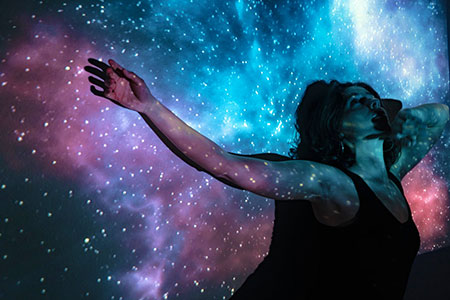 One of the most commonly experienced symptoms of spiritual awakening is frequently waking in the early hours from 3am to 5am. It’s important to rule out any medical reasons this could be happening. However, if you are in good health and you have been regularly waking up this early, then you may be experiencing this due to spiritual awakening.
One of the most commonly experienced symptoms of spiritual awakening is frequently waking in the early hours from 3am to 5am. It’s important to rule out any medical reasons this could be happening. However, if you are in good health and you have been regularly waking up this early, then you may be experiencing this due to spiritual awakening.
You may have found by now in an online search that you are waking up at 3am because it is ‘the witching hour’. You may also have read that 3am is an auspicious time to wake, or the opposite, that it is a ‘time of dark magic.’ Or that during your spiritual awakening you may be ‘spiritually attacked’ and this is why you are waking in the wee hours. While some of this may be true for some people, I am going to have to say that it probably has nothing to do with your waking up at or around 3am.
Yes, it is a sign of awakening! And a very, very common one too. But the reason you are waking at 3am is not metaphysical; it is biological. It is biology which is influenced by your spiritual progression. But essentially it is a return to your natural state of being – your natural sleep cycle. This is called the circadian rhythm.
Most people just accept that we sleep naturally for about eight hours a night. But there is a great deal of evidence that this is not actually the natural sleep cycle for human beings. In fact, evidence suggests that prior to the industrial revolution, our sleep cycle was very different.
To demonstrate this point, we must return to the concept of awakening and what awakening really is. We call it spiritual ‘awakening’ for a reason – we are waking up. Waking up means being conscious in an otherwise largely unconscious world. During the process of awakening people often find themselves becoming very sensitive to things that never really bothered them before. This is because they are suddenly present and hyper-aware when things are out of alignment with the natural order.

